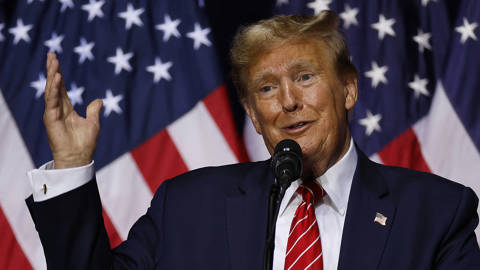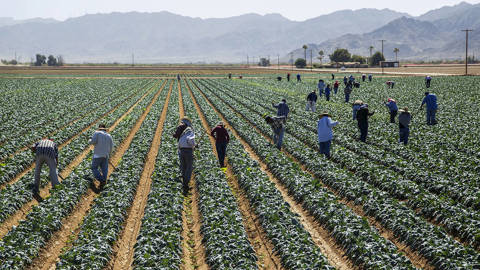OnPoint Subscriber Exclusive
Interviews feature exclusive interviews with prominent leaders and thinkers on issues of global importance.

The G20's Historic Opportunity
With G20 leaders gathering in Rome to discuss the world's most pressing problems, there is a historic opportunity to turn the tide against the coronavirus. But to do so, governments must abandon the toxic nationalism that has so far stood in the way of a sufficient global response to the pandemic.
A vaccine for poor countries to inoculate the world against the virus of nationalism. This is the message sent by Gordon Brown, former British prime minister and one of Europe’s most influential politicians, to G20 leaders meeting in Italy this weekend.
Brown urges the Rome summit to “make history” and sanction the transfer of millions of unused vaccines from rich countries to developing countries that desperately need them. For Brown, the challenge is not just about health. In his view, a nationalist or protectionist response on vaccines would jeopardize economic growth and the return to normality after the COVID-19 crisis.
Francesco Guerrera: What is your message to Italian Prime Minister Mario Draghi and the other leaders on the eve of the Rome G20?
Gordon Brown: The G20 has an opportunity to make a huge difference in the fight against COVID in two ways. One is to coordinate the flow of vaccines around the world. Six months ago, the problem was supply. Now, the problem is distribution, the inequity of distribution. Africa has got only 5% [of its population] vaccinated, while Europe and America [are at] around 70%. We have boosters in rich countries, but still not the ability to have the first vaccine in poor countries. And only the G20 could sort this out because the vaccines are being held by countries that have a surplus of unused vaccines. And they should be airlifted as quickly as possible to the poorer countries.
FG: So why hasn’t it happened yet?
GB: The organization that has been set up to deliver vaccines [COVAX], is a very good organization. If it had the vaccines, it would get them to the poorest countries. The problem is that COVAX is at the bottom of the queue in getting vaccines because countries like the United Kingdom, the United States, Canada, the whole of the European Union, and Japan have ordered the vaccines and are ahead of the queue. And so they are stockpiling vaccines. Even if we take into account boosters, and even if young people are vaccinated, and even after we’ve taken into account the donations that have been offered to those countries, there are around 240 million vaccines that are unused in the EU, America, Canada, and the UK at the moment, that could be airlifted out. And by the end of the year, the figure will be 600 million. And that’s enough for us to meet the 40% [vaccination] target if the vaccines were distributed equitably.
FG: What are the risks if nothing is done?
GB: Unless we act, the disease will spread, it will mutate and it will be in places where people are least protected. Then it will come back to haunt even the fully vaccinated. We in the West may feel safe and blessed at the moment, because we’ve had the vaccines, but we may find a new variant that comes out of Africa or Asia, where people have not been vaccinated and are not protected. And it obviously isn’t susceptible to the vaccines that we have at the moment. And that’s a real danger, if we don’t act quickly to vaccinate the world. The G20 literally provides an opportunity to make history in this regard, because not only can we do something to coordinate the flow of vaccines, but at the same time, we can create the means by which we prevent pandemics in the future.
This is where the G20 could make a difference. This weekend, the leaders have big decisions to make on taxation. We know that they want to see progress on the environment in advance of COP26. But what is blocking economic activity in the world at the moment and preventing a return to normality is the disease.

Secure your copy of PS Quarterly: The Year Ahead 2025
Our annual flagship magazine, PS Quarterly: The Year Ahead 2025, has arrived. To gain digital access to all of the magazine’s content, and receive your print copy, subscribe to PS Digital Plus now.
FG: How optimistic are you?
GB: My worry is, I’ll be honest, that the dominant ideology of the age is nationalism. It’s not some economic philosophy, neoliberal or Keynesian, or whatever. The [dominant] government ideology is nationalism. We’ve seen this with vaccine nationalism and medical protectionism. We’ve seen the failure to cooperate at certain points during the health crisis, despite the fact that I believe World Health Organization Director-General Tedros Adhanom Ghebreyesus has led the WHO with great integrity.
And that’s something international organizations have got to fight, to get people to work together. They’ve got to work hard to achieve this. And obviously, that makes the G20 a very challenging organization to chair. But I don’t think we can afford to give up trying to achieve cooperation.
FG: Are we at a crossroads on this issue?
GB: I do believe that the G20 can take a big step forward. And it’s really about persuading other countries. This coordination is essential. And if it’s not done, everybody loses. We need that coordination and getting vaccines up to the borders. Otherwise, we will be as ill-prepared for the next crisis as we were for the last one.
FG: Don’t you think that the relatively swift rebound from the COVID-induced crisis is making Western leaders complacent?
GB: I want to see resilience. And of course, when I see businesses and individuals and countries, resilient, that is a good thing. But I would not be as complacent as your question suggests about the path of the economy going forward. I think we’ve got to be aware that this age of nationalism, which is more aggressive than it was 10 years ago or five years ago, is actually a barrier to growth. And it’s a barrier to trade. And of course, it may be inflationary in the way it expresses itself. So, I would say to you, we need greater cooperation if we’re going to avoid some of the pitfalls that people are anticipating in the months ahead.



